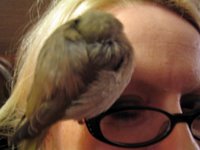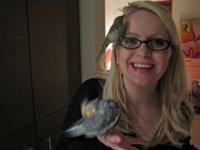Manuscript assessment for writers - interview
 This is an interview I have done regarding manuscript assessment. It hopefully answers some questions for anyone interested in the process. I wrote it for a Creative writing student studying the growth of this industry. I seem to be focussing on my work and writing a little at the moment but that's possibly because i'm writing a book and , well, writing gets a bit obssessive and sometimes it's tricky creating something new when you've just written a couple thousands words of new stuff (that does or does not make sense...)
This is an interview I have done regarding manuscript assessment. It hopefully answers some questions for anyone interested in the process. I wrote it for a Creative writing student studying the growth of this industry. I seem to be focussing on my work and writing a little at the moment but that's possibly because i'm writing a book and , well, writing gets a bit obssessive and sometimes it's tricky creating something new when you've just written a couple thousands words of new stuff (that does or does not make sense...)I hope this is useful to emerging writers or antyone who is looking into getting some objective feedback on their own writing.
How many unsolicited manuscripts do you receive from authors each year?
KB: 80 -100
Can you remember any major differences in numbers with years ago?
Kb: Driftwood has been operating for about ten years now. I have raised the fees, increased the assessor base and included specialists in areas of commercial and popular fiction which weren’t as well represented before, which is to be expected, as the previous director, Eva Sallis, is a highly respected and award-winning literary writer and she knew more literary fiction writers, whereas I write popular fiction and love it, and I love genre –writing, especially crime, thrillers, etc. My ex-partner is a very successful SF writer, so my contacts, interest and expertise were more in the commercial fiction market, and I seemed to attract writers in these genres too. Now we have a really well-balanced list of experienced assessors in almost every genre and field, so I can call on one of them to assess pretty much anything that comes our way, and they have, in turn taught me a lot about genres I don’t work in, such as children’s fiction and literary fiction. I’m constantly amazed by their experience and one of my favourite parts of the job is going over the reports. You can never stop learning and at times I think I learn as much from these reports as the client will. I’m very lucky to have several arms to my writing and editing work, and my mentoring and editing feed into my own work, my writing feeds into my assessment work, etc. I think this is of huge benefit to our writers as well, as I get to help them with their careers by guiding them away from some of the mistakes I made early on, and possibly still do make), while sharing my experiences and those of our assessors.
Kb: We stopped advertising some years ago (I used to put ads in various writers centre newsletters – and I notice many assessment agencies still do this) but frankly we have only increased our client base since that decision. It was, I’m sure a coincidence, but it also coincided with my career taking off a little more, and I think writers are more comfortable dealing with an assessment agency run by someone who earns their money from writing, and who can offer assessors who specialise in various genres and who works in the field as an industry professional with contact with literary agents and editors on a regular basis. I feel very strongly that if you write in a specialist genre such as crime, romance, fantasy, etc, you need more than just a ‘general assessor in fiction’. You need it to be read by someone who reads and writes professionally in this genre, so that’s why much of my effort goes into getting the best writers I can to write our reports. In the latest Australian Writers’ Marketplace Guide (the ‘bible’ for any writer, I believe) there was an incredible leap in the number of Australian assessment agencies. Many are very good and offer different services, many are run by people I believe are not qualified to offer industry inspired reports that are written with the heart of the genre, the love of reading and writing, and the important empathy and understanding that comes from working with other writers who know your field, genre and the career you aspire to. I would always advise writers to check the credentials of an assessment agency and make sure a publisher or agent respects and/or recommends them.
Kb: I also attend many literary festivals as a guest, and in this capacity, I think it quietly but effectively advertises the professionalism of the manuscript assessment agency, as we are very involved in the industry and get many direct recommendations from literary agents and publishers who know me and know that I operate the agency to help writers develop their work to publishable standard, and not to flatter them, as it seems some agencies do – which only gives them false hope, and undermines all the work they have put into their work, as they send the work off before it is ready, or anywhere near a publishable stage, and a publisher/editor or agent won’t accept a manuscript a second time for submission, unless they’re requested it. We try very hard to do the right thing by the writers we deal with, and by consequence, this helps agents and editors, who receive work of a higher quality.
Why do you think this is the case?
KB: I think assessment has become a more integral aspect of the publishing industry, and provides robust, critical and direct feedback that agents and editors can no longer give. There is little room for manuscript development within commercial fiction houses and literary agencies, so the work falls to us. We provide an objective opinion, with our hand firmly in the perspective of the publishing industry, so although our advice can be very tough sometimes, we are direct, and provide examples and praise, and work towards making sure the author does their story and their work, justice it deserves.
Can you describe any changes to the following: (how and why)
a) Presentation/submission/expectations/delivery of manuscripts
KB: I get less writers sending me manuscript wrapped in ribbon, or fully printed and bound like a book already, or with hand drawn covers done by their son, etc, as it’s more well known and pressed upon writers more and more, how the presentation of the ms should be, to make the reading process easier for the editor, publisher or agent who eventually, hopefully, gets to look at it.
b) Reading/reports/appraisal of manuscripts
KB:, I think there are an amazing amount of new agencies popping up, and frankly, very few of them are run by people I have heard of, or who seem appropriately qualified in the field. I think it would be good to have an accreditation, as literary agencies now have, to ensure those operating in their field are qualified to comment on another person’s work. All to often I have people coming to me, insisting they are qualified to assess writing, when really it would be peer assessment, they have been published, they haven’t an agent, or any dealings with the industry and their experience is purely academic. This is not enough experience to give feedback on a person’s work, and I truly believe writers need to be cautious in any case about the feedback they receive, from any assessment agency. We are not a publisher, so our advice is objective, but not directed towards a goal for publication in a certain way, which differs from the reports and editing I receive from my publisher (Hodder Headline Australia – now Hachette Livre Australia), which is directed entirely towards forming the book a certain way, directly for publication.
c) Acceptance/rejection of manuscripts
KB: I’m always stunned how many writers send work in to an agent in first draft stage, having done no research in their field on presentation or what that agent might require, and many who proudly boast that they don’t read in their genre in order not to ‘corrupt’ their vision or style. It’s very peculiar. I then often have conversations with writers and have to explain to them the way the industry operates, something they could discover for themselves from reading any of the terrific books, journals, magazines or by just talking to some one who does this for free at a writers centre. And, so many writers don’t belong to writers’ centres or the ASA (Australia Society of Authors). I think we need all the help and support and access to resources as possible, and I encourage writers to do a great deal of research to both boost their confidence, and to enable them to have an intelligent, informed conversation with an agent or editor if the run into one at a festival (which they should always attend). Hearing other writers speak about their lives and approaches to writing is invaluable.
From your perspective as an (agent/publisher/manuscript appraisal person) do you feel that the above changes have had a positive or negative impact on the book industry? Explain why.
KB: I think editors and agents are glad of some one helping writers present to them work of a higher quality, but it’s a very slow and sometimes indistinct change sometimes. We help writers all the time, but many get discouraged, many realise how difficult it can be to be a professional writer, how dedicated you must be, how much work you must pt into it, and the assessment process can only emphasise this, and thus perhaps many writers drop off, or stop writing for a while, but the ones who are determined to succeed, they take the feedback willingly, they love it. They can also take the criticisms as a challenge and get stuck into it. They’re the writers I know will succeed, as that’s the way I always worked.
Kb: You fall down but you pick yourself up again. In this field, your success is never guaranteed, but your love of it should be, you should love reading and writing and if you love something, no doubt you’ll be happy to do it a great deal, and to sacrifice many other things for it. So the improvement in the step between ‘final’ draft from a writer’s perspective and the work they finally submit for publication, would be greatly improved by the injection of a professional opinion, advice and examples, directions to head, suggestions to change and praise for where the work really is outstanding, so then, hopefully they will continue to write. And if that MS they submitted for assessment doesn’t get published, what they learned from that process improves the next ms, which might.









